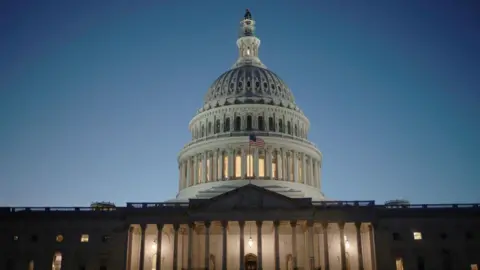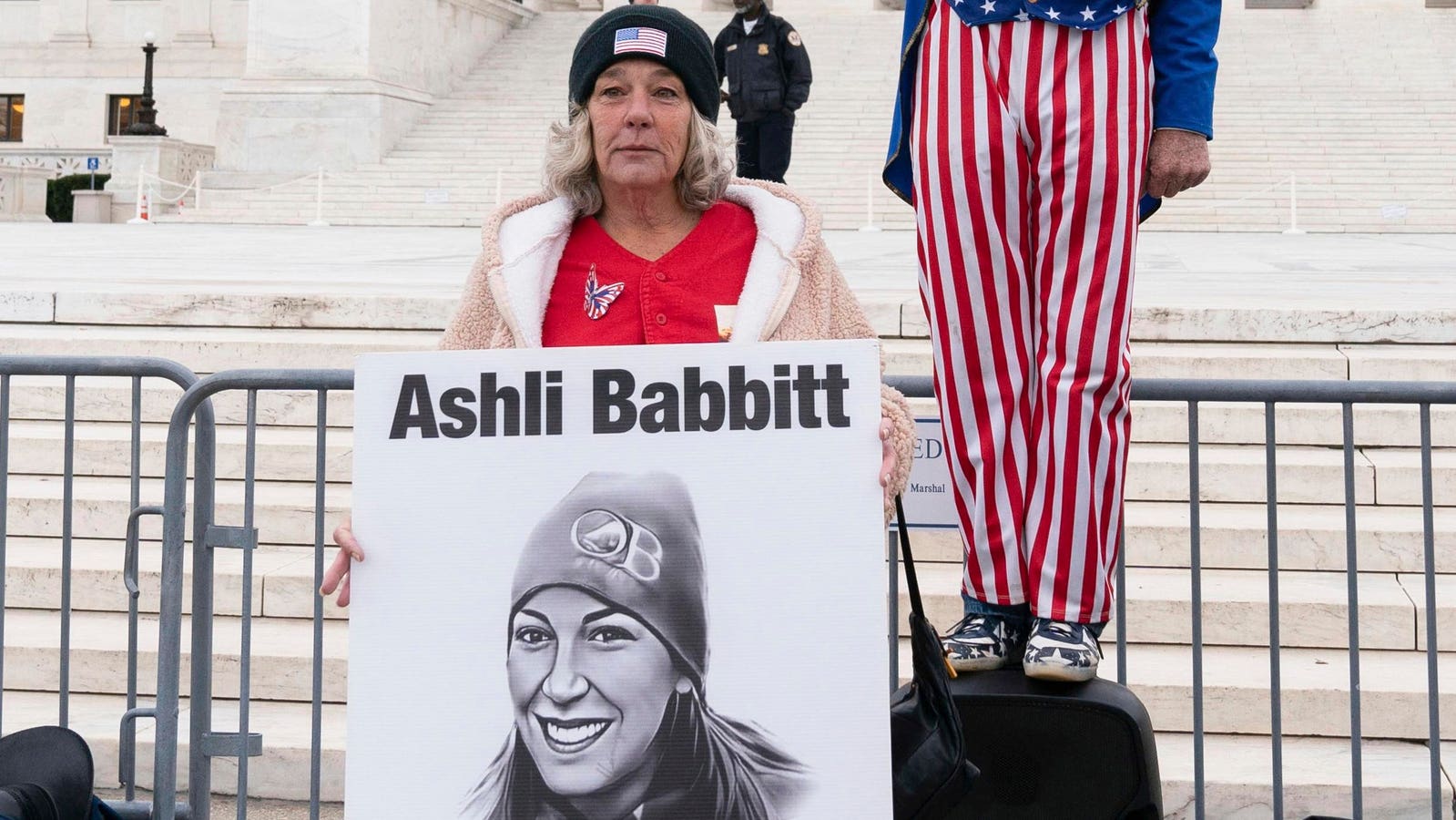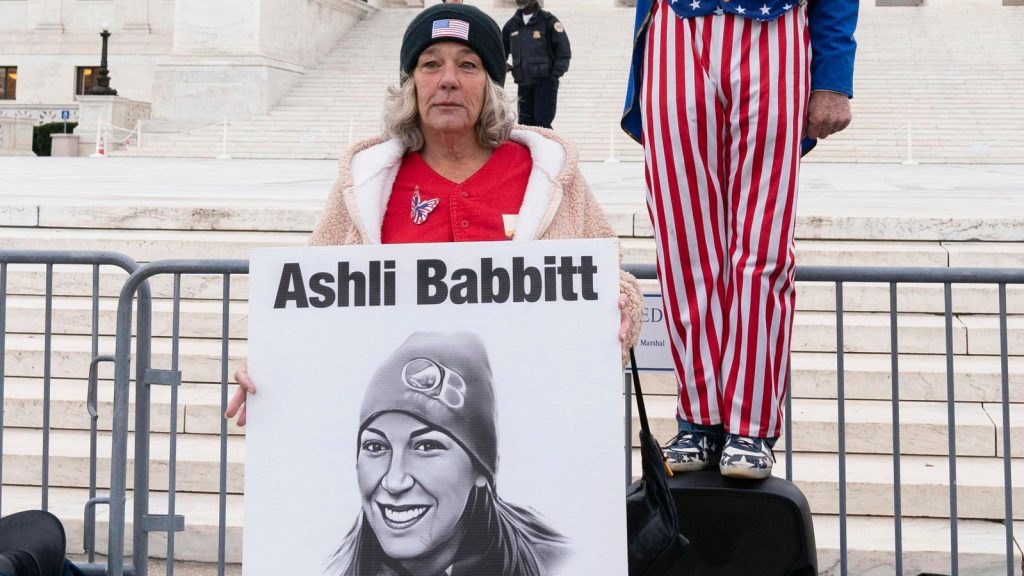Four sticking points in Trump’s ‘big, beautiful’ tax bill

 Getty Images
Getty ImagesUS President Donald Trump’s sweeping tax and spending bill is one step closer to a full vote in the House of Representatives.
The 1,116-page bill – officially known as the One Big Beautiful Bill Act – was approved 17-16 by the budget committee on Sunday night.
Four Republican dissidents voted “present” rather than against the legislation, giving House Speaker Mike Johnson a rare win.
The hold-outs last week voted ‘no’ to the bill, citing concerns that its spending cuts were not deep enough to reduce the national debt.
The Senate must also pass the legislation and Republicans in that chamber are planning their own tweaks.
Let’s take a look at where the disagreements lie.
How much to cut?
Among the primary sticking points in the negotiations is just how much to slash from the bill.
As things stand, the measure’s tax breaks total about $4.9tr (£3.7tn), partly paid for by cuts to the healthcare programme known as Medicaid, as well as to green energy tax breaks approved by former President Joe Biden.
Four right-wing lawmakers withheld their support, arguing that the cuts should be steeper to avoid swelling America’s public debt, which currently stands at $36tr. A fifth lawmaker also voted no, citing procedural reasons.
“The bill does not yet meet the moment,” one of the rebels, Texas Republican Chip Roy, posted on social media late on Sunday. “We can and must do better before we pass the final product.”
Medicaid
Perhaps the most contentious item in the bill are cuts – partly through work requirements – to Medicaid, a healthcare programme aimed at lower-income Americans.
Roy and other Republicans – including South Carolina’s Ralph Norman, Oklahoma’s Josh Brecheen and Georgia’s Andrew Clyde – want further cuts to Medicaid and other social security programmes.
On Sunday night, Speaker Johnson said “minor modifications” had been promised to the four rebels.
Norman said these concessions include making the Medicaid work requirements take effect sooner, preventing undocumented immigrants from accessing Medicaid and ditching green energy tax credits.
The bill currently would require that states deny Medicaid coverage if able-bodied Americans using the programme are not working at least 80 hours a month or undertaking other community options – from 2029, after Trump has left office.
It would also end coverage for those who cannot show they are meeting work requirements.
Roy and other conservatives want those work requirements to start straightaway – rather than after President Trump has left office.
Other lawmakers, such as Missouri Republican Senator Josh Hawley, have argued against any cuts to Medicaid, warning it would affect millions of lower-income constituents.
Hawley wrote in the New York Times that such a move would be “both morally wrong and politically suicidal”.
Dozens of other House Republicans have also voiced concerns.
State and local tax deductions
Another point of contention in the bill is a tripling of a local tax deduction – known as Salt – from $10,000 to $30,000 for couples.
Some lawmakers from states with high taxes such as New York, California and New Jersey have objected, saying that the proposed cap is not high enough.
In a joint statement earlier in May, New York Republican Congress members Elise Stefanik, Andrew Garbarino, Nick LaLota and Mike Lawler said Speaker Johnson’s offer was too low and ” insulting”.
Some so-called Salt Republicans want the cap raised to $62,000 for individuals and double for couples filing jointly.
House Republican leaders are reportedly seeking a compromise that would see the cap raised to $40,000 for individuals and $80,000 for joint filers.
The “Salt Caucus” formed in 2021 is a bipartisan effort that brings together both Democrats and Republicans who hope to repeal the current $10,000 cap.
Food assistance
As part of the bill, House Republicans have called for substantial reforms to the Supplemental Nutrition Assistance Programme, or Snap.
More than 42 million Americans currently benefit from the Snap programme, which allows them to use federal funds to buy groceries every year.
The legislation would require individual states to shoulder 5% of the benefit’s costs each year, as well as 75% of the administrative costs.
At the moment, states are not responsible for Snap costs and pay half of the administrative costs.
Republicans also hope to expand existing work requirements for recipients, which currently apply to people without dependants between the ages of 18 and 54. The current proposal would expand that to 64.
Democratic National Committee chair Ken Martin said the proposal “is a slap in the face” to millions of Americans “who rely on food assistance programme to put food on the table and make sure their kids don’t go hungry”.
Republicans argue the proposal would reduce government waste, promote work over welfare, and restore “common sense” to the programme.
The House Agriculture Committee has already approved $300m in cuts to the Snap programme to fund tax cuts.
Government data shows that about 12% of Americans received Snap benefits last year, with the figure higher in some Republican-leaning states such as Alabama and Oklahoma.










